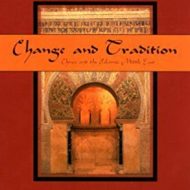On the 4th of December, Professor McGrath hosted a discussion with regards to the impact new technologies are having on religion today. It was a very interesting discussion, and very open to the opinions of the group. Dr. McGrath introduced us to the subject through some of the new forms of technology impacting religion in our world, such as the use of apps that generate prayer for the user, or robotic priests that are becoming common in Europe and are performing tasks such as baptisms.
The part of the discussion which I found the most interesting was regarding the topic of recorded sermons. In today’s age, less people are going to physical churches or places of worship to participate in sermons, and instead are relying on live streams or digital recordings of the sermon. One of the faculty members in the discussion brought up a verdict the Catholic church had came up with that essentially discredits watching a previously recorded sermon as receiving the same benefit as the sermon offers to those physically at the sermon. However, live streams, which involve being in the same space and time as the sermon while just watching it from home, are acceptable in receiving the benefit of the sermon. So clearly there is a fine line in what is acceptable when it comes to technology affecting the benefit of prayer and sermon, and this was very interesting to learn about as I’m sure in this digital age many people are relying on media for religious matters.
The topic of religion and religious studies is something I’m not all too familiar with, so it was much easier for me to engage in and receive the messages of this sermon as it connected with many current forms of technology and technology use. I brought a friend to this discussion and he too said he really learned a lot in the brief time we were at Dr. McGrath’s discussion. So kudos to you Dr. McGrath! And thank you for putting on such a wonderful break for our final studies!

